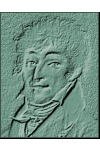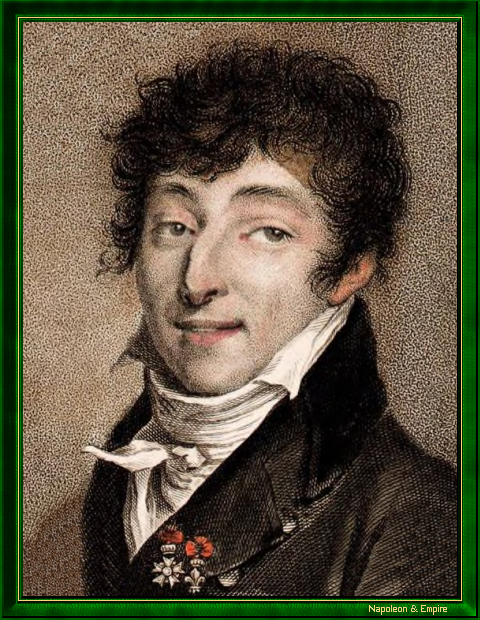Henri Montan Berton
Pronunciation:

Henri Montan Berton was born in Paris on September 17, 1766 or 1767. His father, Pierre Montan Berton, was a renowned musician, singer and conductor, whose career culminated as director of the Paris Opéra.
Having begun his musical apprenticeship at an early age, Berton was hired as a violinist at the Paris Opéra at the age of fifteen.
In 1787, he performed his first work, Les Promesses du mariage, at the Comédie-Italienne (later Opéra-comique). The warm reception it received from the public enabled the young composer to present several other works in the years that followed.
In 1795, he became a professor at the Conservatoire de Musique.
Montano et Stéphanie was a triumph in 1799. His success was confirmed by Aline reine de Golconde in 1803 (later performed in the United States), Le Vaisseau amiral in 1805, Françoise de Foix in 1809 and La Victime des Arts in 1811.
In 1807, Henri Berton took over management of the Opéra-Bouffe and gave the first Paris performance of Wolfgang Amadeus Mozart's The Marriage of Figaro.
From 1810 to 1815, he directed the chorus at the Paris Opéra.
Member of the Institut in 1813, he was made Chevalier de la Légion d'Honneur under the Restoration. In 1818, he took over Etienne Méhul's composition class at the Conservatoire.
In 1828, the bankruptcy of the Opéra, to which he had sold the performance rights for his works, dealt a severe blow to his finances.
He died in Paris on April 22, 1844, and is buried in the Père-Lachaise cemetery (13th division).
"Henri Montan Berton". Watercolor engraving after François Dumont (Lunéville 1751 - Paris 1831).

Henri Montan Berton left a Traité de l'harmonie, followed by a Dictionnaire des accords (1815) and Memoirs, published after his death.
Berton was a fierce critic of the music of Hector Berlioz, who repeatedly thwarted his quest for the Prix de Rome, declaring that an academy could not and should not encourage a genre of music like his.